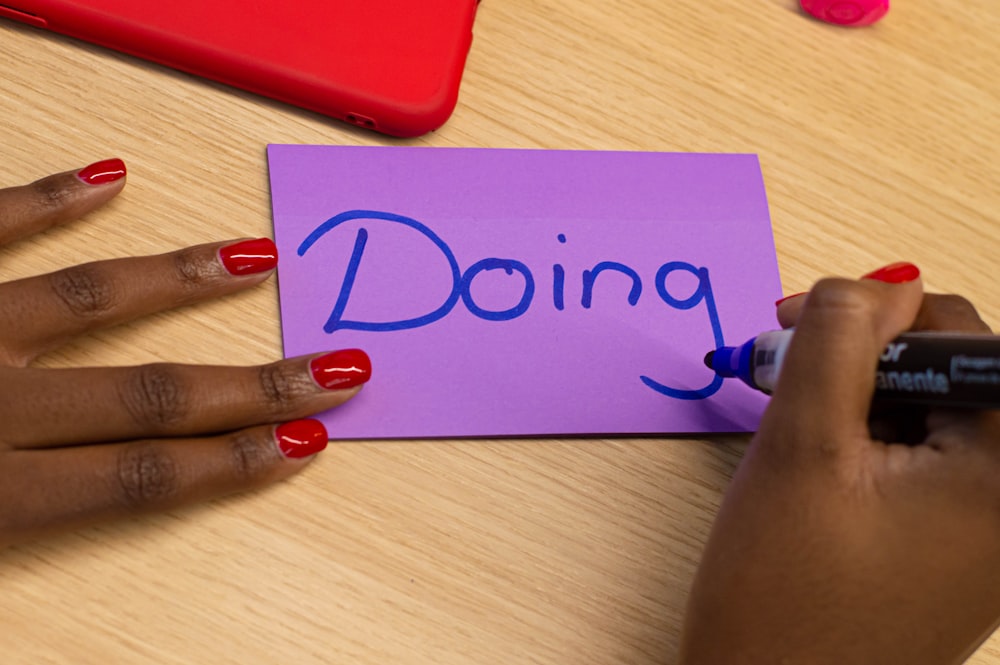Are You Doing Too Much?

In today's fast-paced world, the pressure to do more, achieve more, and be more is ever-present. From the demands of work and career to personal responsibilities and social obligations, many of us find ourselves constantly juggling multiple tasks and commitments. But amidst this hustle and bustle, it's important to pause and ask ourselves: Are we doing too much? In this blog post, we'll explore the signs of overdoing it, the potential consequences, and strategies for finding balance in our lives.
Signs of Doing Too Much:
- Chronic Stress and Burnout: Feeling constantly overwhelmed, exhausted, and unable to relax or unwind are common signs of doing too much. Persistent stress can lead to burnout, a state of physical, emotional, and mental exhaustion.
- Neglecting Self-Care: When we're stretched thin, self-care often takes a backseat. We may neglect our physical health, skip meals, or forego exercise. Mental and emotional well-being also suffer as we fail to prioritize activities that bring us joy and relaxation.
- Difficulty Concentrating: Overcommitting ourselves can lead to cognitive overload, making it challenging to focus and concentrate on tasks. We may find ourselves easily distracted or struggling to complete projects due to a scattered mind.
- Decline in Relationships: Maintaining meaningful connections with others requires time and effort. When we're spread too thin, relationships may suffer as we struggle to find time for loved ones or prioritize work over social interactions.
- Decreased Productivity: Paradoxically, trying to do too much can actually hinder productivity. As our attention is divided among numerous tasks, we may become less efficient and effective in our work.
Consequences of Overdoing It:
- Physical Health Problems: Chronic stress and neglect of self-care can take a toll on our physical health, leading to issues such as headaches, insomnia, digestive problems, and even more serious conditions like heart disease and immune system disorders.
- Mental Health Issues: Overcommitting ourselves can contribute to anxiety, depression, and other mental health disorders. The constant pressure to perform and meet expectations can erode our sense of well-being and self-worth.
- Strained Relationships: Neglecting relationships can result in feelings of loneliness, isolation, and resentment from loved ones. Over time, strained relationships can have a significant impact on our overall happiness and quality of life.
- Career Setbacks: While striving for success is admirable, overextending ourselves in our careers can backfire. Burnout and decreased productivity can undermine our professional performance and limit opportunities for advancement.
Strategies for Finding Balance:
- Prioritize and Delegate: Identify your most important tasks and responsibilities, and focus your time and energy on those. Learn to delegate tasks that can be handled by others, whether at work or home.
- Set Boundaries: Establish clear boundaries around your time and commitments. Learn to say no to requests that don't align with your priorities or values, and don't feel guilty for prioritizing your well-being.
- Practice Self-Care: Make self-care a non-negotiable part of your routine. Schedule regular breaks, engage in activities that bring you joy and relaxation, and prioritize sleep, nutrition, and exercise.
- Manage Your Time Wisely: Use time management techniques such as prioritization, batching similar tasks together, and setting realistic deadlines. Avoid multitasking, as it can lead to decreased productivity and increased stress.
- Cultivate Mindfulness: Practice mindfulness techniques such as meditation, deep breathing, and grounding exercises to help you stay present and calm amidst the chaos of daily life.
Conclusion:
In a world that often glorifies busyness and productivity, it's easy to fall into the trap of doing too much. However, prioritizing our well-being and finding balance is essential for our physical, mental, and emotional health. By recognizing the signs of overdoing it, understanding the potential consequences, and implementing strategies for finding balance, we can create a more fulfilling and sustainable way of living. Remember, it's not about doing more—it's about doing what matters most.









































